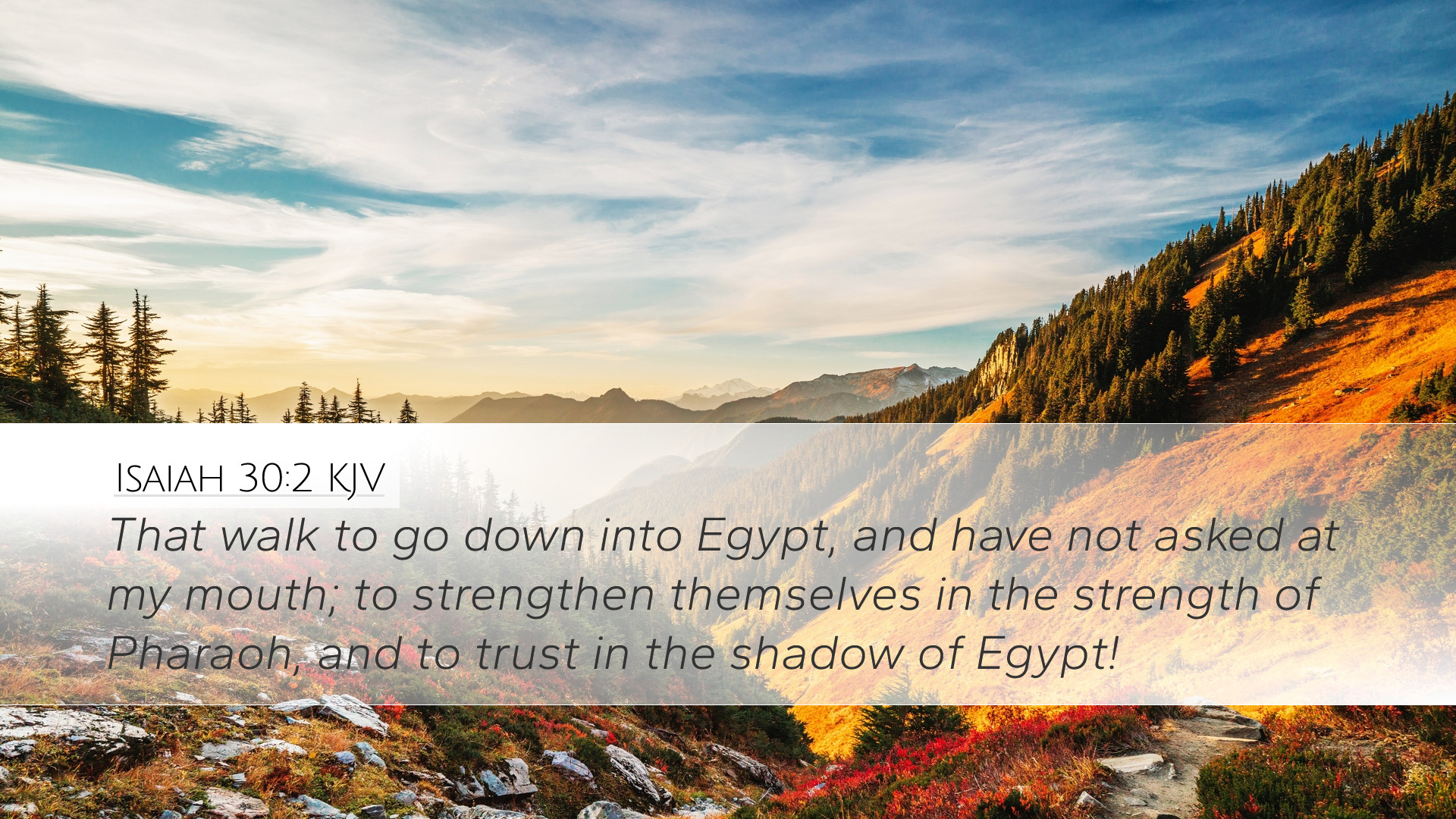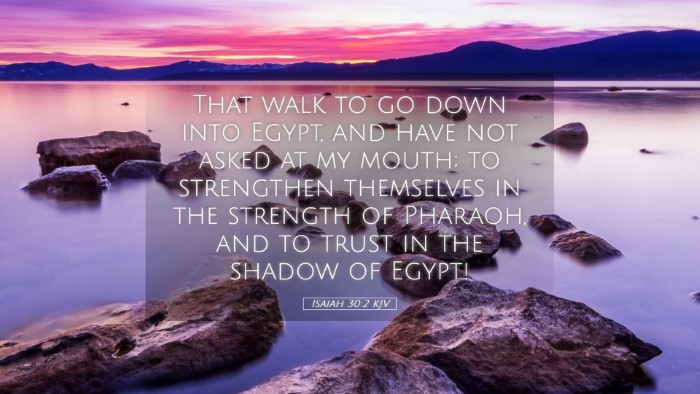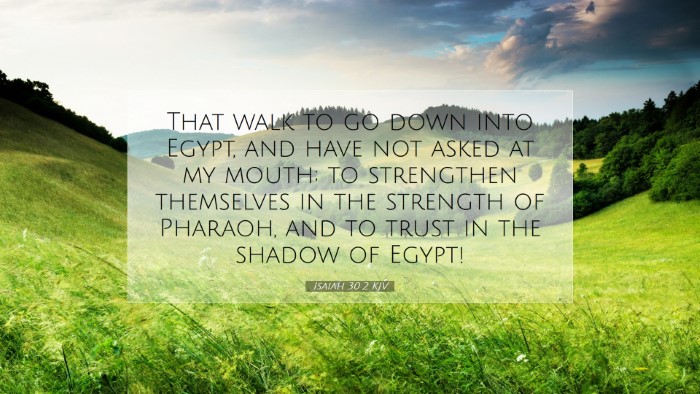Commentary on Isaiah 30:2
Isaiah 30:2 reads: “That walk to go down into Egypt, and have not asked at my mouth; to strengthen themselves in the strength of Pharaoh, and to trust in the shadow of Egypt!” This verse is a poignant declaration against the people of Judah, who have sought security in earthly alliances instead of relying on God.
Contextual Background
The book of Isaiah is a prophetic text that addresses the challenges faced by the Kingdom of Judah during a tumultuous historical period. The threat from Assyria loomed large, and in their desperation, the people considered turning to Egypt for aid rather than turning to God.
Analysis of the Verse
This verse contains several key themes:
- Seeking Earthly Security: The reference to "going down into Egypt" symbolizes reliance on worldly powers instead of divine assistance.
- Lack of Divine Consultation: The phrase "have not asked at my mouth" indicates a failure to seek God’s guidance and plan.
- The Futility of Trust: Trusting "in the strength of Pharaoh" reflects misplaced faith in human authorities.
- Spiritual Blindness: The "shadow of Egypt" signifies a false sense of security that leads to spiritual and moral compromises.
Insights from Matthew Henry
Matthew Henry observes that Judah’s inclination to Egypt signifies a departure from faith in God. He emphasizes that the people were seeking help from “the arm of flesh” rather than from the Almighty. Henry points out that they were afraid of their enemies and thus turned to a neighboring kingdom for assistance.
Furthermore, Henry notes that this dependency on Egypt illustrates a broader spiritual malaise—an inclination towards self-reliance rather than reliance on God’s providence. He warns that such strategies will ultimately lead to disappointment and judgment.
Insights from Albert Barnes
Albert Barnes expands upon the metaphor of going to Egypt, linking it to spiritual blindness and a lack of faith. He elaborates that turning to Egypt was not just a political maneuver but also represented a deeper mistrust in God’s protective power. Barnes emphasizes the irony of choosing “the shadow of Egypt” over the “shadow of the Almighty” from Psalm 91.
Moreover, Barnes asserts that the alliance with Egypt ultimately serves only as a temporary solution. It cannot provide genuine security or the true counsel needed for salvation. He underscores that reliance on human assistance is always fraught with peril.
Insights from Adam Clarke
Adam Clarke provides additional insights into the nature of the rebellion of Judah against God. He notes that the abandonment of divine guidance—evidenced by not “asking at my mouth”—illustrates a complete disregard for God’s commandments and presence in times of trouble.
Clarke warns that such decisions made without consulting the divine source lead to dire consequences. He expresses that divine instruction is crucial, especially in perilous times, and neglecting it is tantamount to inviting disaster.
Theological Implications
The theological ramifications of Isaiah 30:2 are profound:
- The Nature of God: This verse reveals God’s desire for His people to seek Him in times of distress rather than relying on worldly solutions.
- The Call to Faith: The refusal to trust in God’s provision illustrates the tension between faith and human pragmatism.
- Warnings Against Idolatry: In seeking assistance from Egypt, the people engage in a form of idolatry, looking to created rather than the Creator for help.
Application for Today
For pastors, students, theologians, and Bible scholars, Isaiah 30:2 serves as a timeless reminder about the importance of consulting God in our decisions. In a world where many seek worldly solutions to spiritual problems, this passage calls believers to a higher standard of faith and reliance on divine wisdom.
In practice, it nudges leaders to guide their congregations toward prayerful consideration and divine guidance in all matters of life, ensuring that the church remains anchored in the truth of God’s word rather than swayed by societal pressures or human alliances.


